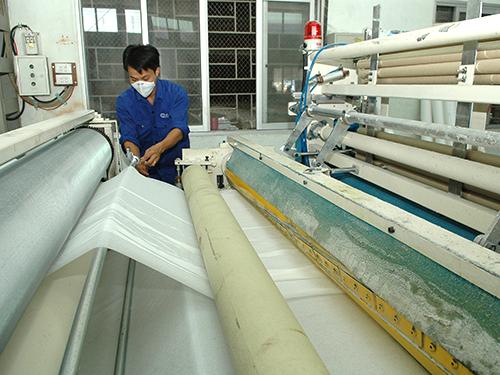Vietnam seeks solutions to polluting paper factories
More than 90 percent of paper factories in Vietnam operate with substandard waste water treatment systems or have no such system, creating pollution in localities where they are located.

Paper production, which requires 200-500 cubic meters of clean water to make one ton of paper, is a huge consumer of water and is one of the biggest environmental polluting industries.
However, the majority of paper factories do not have waste water treatment systems which can meet standards, because they don’t want to spend money on waste water treatment work.
The Ministry of Industry and Trade (MOIT) said it would apply more drastic measures to stop the use of outdated equipment that causes pollution. It will also require companies to install waste water treatment systems.
An official of the ministry said a new circular stipulating the standard energy consumption levels for some key industries, including paper and pulp production, will be released in 2015.
This will set up technical barriers to prevent paper manufacturers from using out-of-date technologies.
If manufacturers are unable to meet the required energy consumption levels, they will be punished or forced to stop operations.
For the last few years, the solution of recollecting waste heat has been applied at the Bai Bang Paper Plant.
This not only allows the plant to save chemicals and reduce the consumed input materials (thus reducing the natural resource waste), it also helps increase the enterprise’s profits.
With the solution, the plan can cut 90 percent of the gas that emits bad odors as there is no need to flush black water when cleaning tanks, and therefore, it can help ease congestion in the production line.
However, most of the other investors remain indecisive about the treatment solution, partially because of overly high standards set by state management agencies.
In April 2011, the My Xuan Paper Plant in Ba Ria – Vung Tau province of the Saigon Paper JSC put into operation a waste water system worth VND10 billion.
With the system, the company can resolve pollution from the plant, but it has had to spend a great deal of money for treatment systems. The problem lies in the overly high standards, which are even higher than those of European countries.
Under the Vietnamese standard, the COD index in the waste water of the My Xuan Plant must not be higher than 200 mg per liter, which is 1.5 times higher than the Dutch standard of 325 mg per liter.
In order to meet the requirements, the company has had to spend VND8,514 to treat one cubic meter of waste water. As such, it costs the company VND1.6 billion a month to treat 6,000 cubic meters of waste water.
Analysts noted that companies have been reluctant to invest in expensive waste treatment systems because of the overly high requirements.








